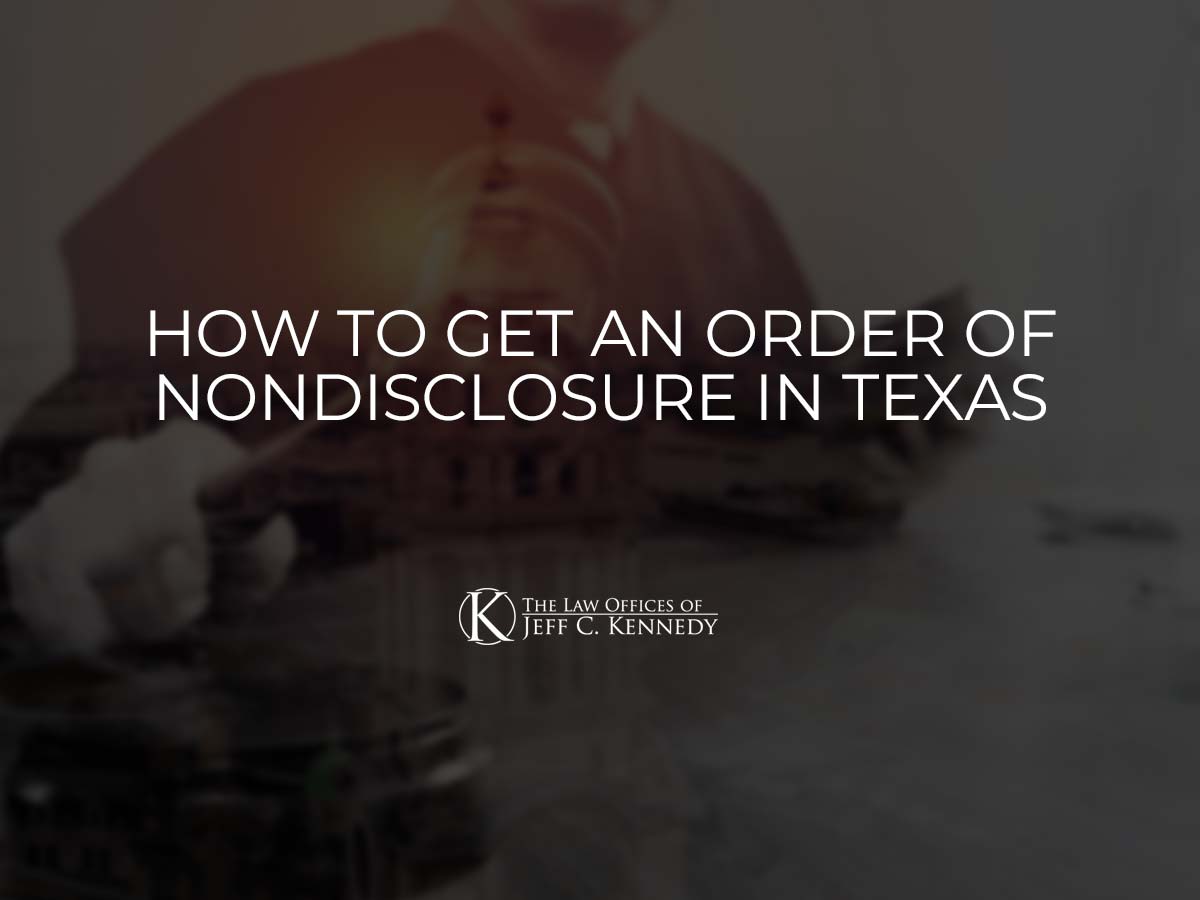
Being convicted of a particular criminal offense doesn’t automatically mean that you’ll live with the repercussions for the rest of your life.
There are several options that you can explore with your criminal defense lawyer to seal or keep the arrests and convictions inaccessible to the public. This article will define an order of nondisclosure, eligibility criteria in Texas, and what you should do to get one.
What’s an Order of Nondisclosure?
The law in Texas allows anyone with a criminal conviction history to have part of their record sealed depending on certain circumstances that we’ll discuss later on. An order of nondisclosure puts these particular offenses away from the public eye. This means that law enforcement agencies or public prosecutors cannot share this information, nor should you have to include the same in job applications.
Can I Get an Order of Nondisclosure in Texas?
Getting an order of nondisclosure in Texas depends on whether you meet certain set requirements and have provided the necessary documents. The law states that you are ineligible or don’t qualify for a nondisclosure order if:
- You have been placed on deferred adjudication or convicted of offenses including those that require registering as a sex offender, aggravated kidnapping, human trafficking, murder, child or elderly abuse, child endangerment, stalking, and violating court orders.
- The offense associated with the request for a nondisclosure involved family violence.
- You were placed on deferred adjudication or convicted of another offense, excluding traffic violations, after being convicted or placed on probation for the offense in question.
If you’re still uncertain whether you qualify for an order of nondisclosure in Texas, evaluate your case with a criminal defense attorney to understand your options. Sometimes people with criminal records can be eligible for expungement without even knowing it.
Steps to Follow When Getting an Order of Nondisclosure
After determining your eligibility, you’ll need to file an application with the court clerk back where your case was handled. It’s crucial to have a defense lawyer at this point because there are several types of nondisclosure orders that all have different application forms and requirements.
The court clerk will then forward your application to the judge and state attorney to make a ruling. If your petition is successful, the clerk will then send the order to the department of public safety (DPS) within 15 days. The DPS then seals the offense in question within 10 days and sends a copy of the same to respective government agencies, as well as private companies upon your request.
Reach Out to a Criminal Defense Lawyer for Legal Help
A criminal record can taint your life forever. It will be almost impossible for you to land well-paying jobs, win crucial legal battles like child custody or immigration issues, gain admission to certain programs, and so on.
If you have a criminal record and are wondering whether you qualify for an order of nondisclosure, arrange a free case review meeting with a defense lawyer from The Law Offices of Jeff C. Kennedy. Fill out the contact form below or give us a call at 817-605-1010 to get started.
 By
By